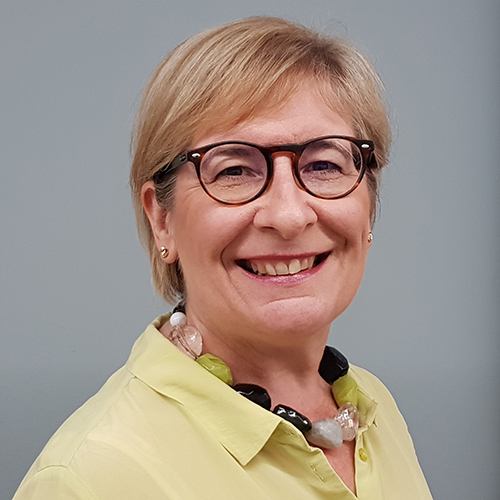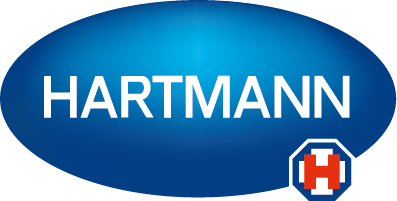Andrea Nelson

Andrea is an adult Nurse with a PhD in Bioengineering and a clinical researcher working in the prevention and management of chronic wounds, such as leg ulcers, diabetic foot ulcers and pressure ulcers. This research evaluates the effects of treatment, including diagnostic tests, often using trial and systematic review methods. These studies have made a difference to care of patients by their results being integrated within clinical practice guidelines, nurse education and by providing tools for clinicians to assess patients to better prevent pressure ulcers.
Over the last 20 years she has worked at the Universities of York, Leeds and is now based at Glasgow Caledonian University where she is an executive lead for Research and Innovation, as pro vice-chancellor, research (PVCR). She directs the Research Centre in Health and Life Sciences, called ReaCH, and undertakes her personal research portfolio.
In the PVCR role she oversees the Graduate School comprised of almost 600 post-graduate students (e.g. PhDs), the Research and Innovation Office supporting the preparation of high quality research applications, knowledge transfer, consultancy, business start-up and innovation awards.
She is the Executive lead for her research centres, lead on the Civic University and Community and Public Engagement agenda, and has been coordinating the United Nations Sustainable Development Goals (SDGs) activity since May 2021. These varied aspects of her work are all working towards the University mission ‘for the common good’
Presentation at The SoTV/EWMA 2024 Conference, London
Characterising infection in diabetic foot ulcers: a programme of work to inform wound sampling strategies and clinical management
Learning objectives
After attending this session, persons will be able to:
- Appreciate the concurrent approaches taken to managing clinically infected diabetic foot ulcers – empirical antimicrobial initiation, with wound sampling for microbiology to inform revision of antimicrobial upon clinical review
- Understand the rationale for current clinical guidelines recommending tissue sampling over wound swabbing
- Evaluate the approaches taken to robustly estimate the clinical differences that may arise from the choice of tissue sampling versus wound swabbing through the development of a pragmatic, outcome blinded, randomised controlled trial, with follow up to record healing, amputation, hospitalisation, adverse events, resource use, quality of life, and death.
- Discuss the wide uncertainty regards any clinical benefits associated with a choice of sampling approach in this particular patient group and context, with a finding of higher costs and lower quality of life associated with tissue sampling over swabbing
Abstract
Aims/hypothesis – CODIFI2 compared clinical and health economic outcomes of wound swabbing versus tissue sampling in people with clinically infected diabetic foot ulcers (DFU).
Methods – Multicentre, Phase III, prospective, unblinded, 2-arm parallel group, randomised controlled trial comparing time to ulcer healing (primary outcome, blinded), proportion healed, antimicrobial regimen, ulcer area change, DFU hospitalisation, time to death, quality of life, and cost-effectiveness of swab compared to tissue sampling. Allocation was central via independent randomisation system, minimisation by site, DFU count, index DFU type, size, location and duration. Follow-up was 52-104 weeks. Target was 730 participants for 90% power to detect a treatment effect of 12.5% in proportions healed at 52-weeks.
Results – Recruited 149 participants (75 Swab, 74 Tissue) from 21 UK sites, May 2019 and May 2022. The 52-week cumulative incidence of confirmed healing as first event was 45.3% (33.5% to 56.4%) and 44.6% (33.0 to 55.6%) for swab vs tissue. Hazard ratio (HR) for healing – tissue vs swab – was 1.01 (95% CI 0.65 to 1.55). Antibiotic changes were slightly higher for tissue (19.4%) versus swab (15.1%). Median (IQR) time in hospital was 17 (12 to 39) and 16 (10 to 32) days for swab and tissue respectively. Seventeen swab and 7 tissue participants died during follow-up. Overall, 18.7% and 24.3% participants in the swab and tissue groups respectively had an amputation. Quality of life assessed using DFS-SF was similar across groups. The cost of tissue sampling was greater than swabbing across antibiotics, hospitalisation, and other costs. Swab sampling was associated with higher QALYs and lower costs across weeks 26 to 52, reducing slightly by week 104.
Conclusions/interpretation – This trial was underpowered to determine whether swab or tissue sampling approaches impacted the rate of ulcer healing or time to healing. Exploratory data indicates that any such differences would likely be small. Clinician prescribing behaviours differed only slightly between groups. Higher costs, lower QALYs and lack of evidence of benefit associated with tissue sampling versus swab meant that swab dominated tissue sampling in the cost-effectiveness analysis.
Presentation at The Society of Tissue Viability 2022 Conference
The United Nations sustainable development goals and tissue viability practice
Objectives
After attending this session, persons will be able to:
- Understand the ambitions of health services to incorporate environmental, social and governance (ESG) ambitions within their mission
- Describe the United Nations’ Sustainable Development Goals
- Reflect upon ways in which their tissue viability practice contributes to the UN Sustainable development goal on Good Health and Well-Being
- Consider ways in which their tissue viability practice might contribute to other UN Sustainable development goals, such as Gender Equality, Sustainable Cities, Reduced Inequalities and Responsible Consumption and Production
Abstract
The 2030 Agenda for Sustainable Development, adopted by all United Nations Member States in 2015, provides a shared blueprint for peace and prosperity for people and the planet, now and into the future. At its heart are the 17 Sustainable Development Goals (SDGs), which are an urgent call for action by all countries – developed and developing – in a global partnership. They recognize that ending poverty and other deprivations must go hand-in-hand with strategies that improve health and education, reduce inequality, and spur economic growth – all while tackling climate change and working to preserve our oceans and forests.
Glasgow Caledonian was the first UK University to develop its research strategy to align with the UN SDGs and we use these to guide our research questions, strategy, and how we conduct our research. Working in this way ensures that we are aware of and seek to meet the highest standards of Environmental, Social and Governance (ESG) responsibility both as an educator of around 20,000 students and as a major employer in Glasgow.
Within Tissue Viability we have a number of opportunities to consider the impacts that our practice has upon people and the planet. This presentation will set out the SDGs and explore the ways in which contemporary tissue viability practice and research could contribute to enhanced sustainability. Examples around SDG #3 – Good Health and wellbeing, and SDG#5 on Gender Equality, will be raised to prompt practitioners to reflect upon their sustainable practice.














